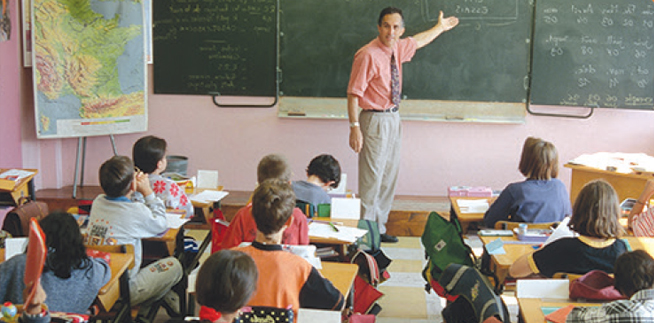Justin Pahl

With school starting around much of the world, it’s an interesting time to examine education – what it is, how we educate, and how we really learn.
In response to these questions, Salon posted an interesting, engaging article recently entitled “School is a Prison.” It claimed that the current model of schooling – which can be classified as “memorizing and testing” – is an outdated relic, and actually hinders children’s natural curiosity.
It was an article that struck a chord with me. As a kid, I remember fearing the first day of school with an incomparable ferocity. As the weeks of summer dwindled, a gnawing ate away at my stomach. Looking back, this gnawing can only be described with one word – dread. I dreaded the end of my freedom – to explore the woods and beaches around our summer home in Michigan. I dreaded being forced to read instead of choosing the books I wanted to read – I was particularly fond of books about mountain climbing and World War II. I dreaded spending a majority of my day – a majority of the sunshine hours! – confined to a dreary classroom.
As I got older, this impulse lessened slightly. I had good friends who made school more palatable. I found a few teachers who understood my strengths – namely, writing – and helped me to develop them.
Looking back at my schooling, what I remember, what I consider most valuable, were not the days spent in the classroom, but the days spent outside of it.
I went to college at Temple University in North Philadelphia. It was a dramatically different environment than the ones I grew up in – the small towns of the Midwest, the suburbs of Philadelphia. Temple is located in one of the poorest, most violent neighborhoods in the United States.
What I remember of those years are not hours spent in the classroom, but the awakening that occurred outside of it. I remember my encounters with my neighbors, many of whom were unemployed, or who worked three jobs to survive. I remember being the only Caucasian person in a restaurant, feeling the eyes on me. I learned what it felt like to be a minority. I learned what it was like to live amidst poverty – crushing poverty, the kind that you can’t escape.
Except, I could escape it. And I would escape it. Most of the people I met – my neighbors, the homeless men I would talk to everyday on my walk to class – could not escape it. I was lucky. But at the time, I remember being miserable – because for the first time in my life, I was forced outside of my privileged comfort zone. The experience of confronting the poverty outside the classroom – the real world, not the one of tests and memorization – left a far more indelible impression on me than anything I learned inside the classroom. And those memories – the faces of those who begged me for money; the stories men told me in the corner store; the musicians who played while I waited for the subway; the looks I received when sitting down in an all-black restaurant – have endured in a way that lectures about James Joyce and Civil War history have not. They continue to educate me today.
Justin Pahl is a staff editor with The Fountain.









